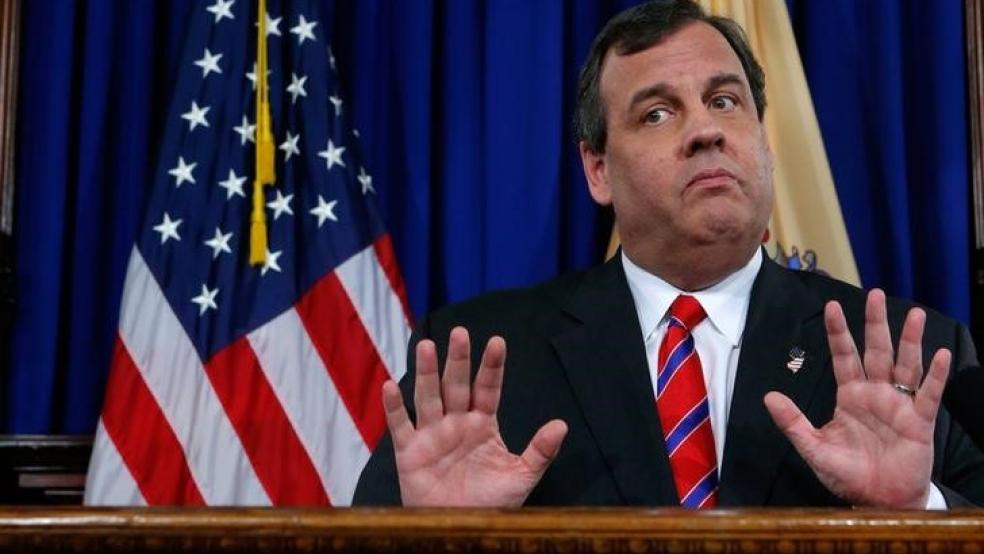In New Jersey, a budget stalemate between Republican Gov. Chris Christie and the Democratic legislature has closed state facilities, including state beaches and parks, spoiling the July 4th holiday weekend for hundreds of thousands of irate residents.
Another budgetary dustup in Maine prompted Republican Gov. Paul LePage to declare a state of civil emergency and discontinue all but essential state governmental services. And in Illinois, Republican Gov. Bruce Rauner and the Democratic–controlled legislature stumbled into the third consecutive year in which they have failed to adopt a budget or address grievous spending, revenue and pension problems.
Related: Could Illinois Be the First State to Go Bankrupt?
These and eight other state budget crises across the country were triggered over the weekend when governors and lawmakers failed to agree on budget blueprints before the start of a new fiscal year July 1. Just as the federal government could be faced with another partial shutdown this fall if Congress and President Trump fail to agree on new spending authority, smaller budget crises are playing out this summer in state capitals along the Eastern Seaboard and in the Midwest.
States that still hadn’t adopted new budgets on July 1 as required by law included Connecticut, Delaware, Illinois, Maine, Massachusetts, New Jersey, Oregon, Rhode Island and Wisconsin, according to the National Association of State Budget Officers. Meanwhile, the state legislatures in Pennsylvania and Michigan passed budgets, but they were awaiting final action by their governors.
According to the Associated Press, many of the disputes “are driven by ideological divides made worse by poor budget forecasting.” Indeed, half of the states received less in taxes than expected last fiscal year, in what the budget officers’ association deemed the “worst job of estimating” since the end of the Great Recession.
Related: Nearly a Dozen States Are Suffering From ‘Chronic Budget Stress’
In the case of New Jersey, the politically tarnished Christie is engaged in one final showdown with his Democratic nemeses before he leaves office. Christie has demanded that Horizon Blue Cross Blue Shield, the state’s largest health insurer, turn over $300 million of its $2.4 billion of reserves to the state to help finance one of the governor’s leading causes -- battling opioid addiction.
But when the state general assembly refused to go along with this plan by midnight Friday, Christie ordered all non-essential services, including state beaches and parks and the motor vehicle commission, to close beginning on Saturday, and furloughed thousands of state employees.
Other activities such as New Jersey Transit, state prisons, state hospitals and casinos were unaffected by the executive order.
Christie blamed Vincent Prieto, the Democratic leader of the state assembly, for the shutdown. State office buildings were adorned with posters showing Preieto and a caption that read, “This Facility Is CLOSED Because of This Man,” The New York Times reported.
Related: States Face a $1 Trillion Pension Problem: Here Are the Worst 10
And in what might be considered the ultimate display of arrogance, Christie and his family were seen sunning themselves over the weekend in Island Beach State Park, a popular beach near the governor’s residence, that had been closed to the public.
While Christie and New Jersey Democratic lawmakers bickered over a relatively small-bore funding issue, a far more important budgetary melodrama was playing out hundreds of miles away in Springfield, Illinois.
Illinois began its third straight fiscal year without a budget on Friday night, as Gov. Rauner and the Democratic-controlled legislature failed once against to agree on how to cope with chronic deficits and a vastly underfunded pension program for state employees and retirees.
Illinois has long been the poster child for dysfunctional state finance and has the dubious distinction of being the only state to have operated without a complete and balanced budget for more than 700 days. The state is literally on the verge of bankruptcy. It has been forced to conduct business under court-ordered spending and stop-gap measures while running up a massive $9.6 billion deficit.
The state is also responsible for a record backlog of unpaid bills totaling $14.7 billion, causing fear among programs, colleges and local agencies dependent on state aid. Without a deal by early July, S&P Global Ratings has warned that the nation’s fifth-most-populous state will likely lose its investment-grade status, a setback that would add hundreds of millions of dollars to the state’s borrowing costs.
Related: Illinois Is Not Alone: States Facing $1 Trillion Pension Shortfall
There appeared to be a breakthrough Sunday night, when the Illinois house voted for a major income tax increase, similar to a plan approved earlier this year by the state senate that would raise $4.3 billion. Republicans worried about the state’s credit rating and the loss of funding for state colleges and universities in their districts joined with the Democrats in passing the bill.
Now it goes to the senate for action as early as Monday, where Democrats will again need help from the Republicans to pass the bill. Even if both chambers approve of the measure, Rauner, a former businessman who is up for reelection this year, is threatening a veto unless he extracts additional budget cuts.
To override a veto, the house would need to muster 71 votes (or one less than the 72 votes cast for the bill on Sunday night), and the Senate would need 36, according to the Chicago Tribune.





